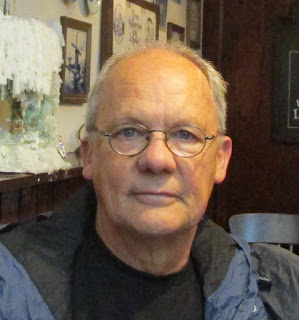Interview with author Gary Guinn
Gary Guinn is a retired English professor, a progressive who taught at a small conservative college for 35 years. He lives in Northwest Arkansas, and since retiring, he has been traveling, writing, enjoying friends, and walking the dogs. Gary published a literary novel twelve years ago and has now started a mystery/thriller series, the first book of which will be published by The Wild Rose Press in March. We have conducted an interview with him.
Why did you choose to write about threats that a professor face in your mystery/thriller series?
Fairly early in my career at the college where I taught, a threat similar to the one in my novel actually happened. Three faculty members received anonymous threatening notes. I was not one of them, but they were friends of mine. They were liberal professors, and the threat was aimed at their beliefs and was couched in violent terms. It was a very stressful time for them. In the end, the threat was not carried out, but I used it as a starting point for my novel.
How similar or different is the main character Lam Corso to yourself?
In many ways, he is much like what I was as a young professor at the college. I patterned his liberal beliefs and attitudes after my own. Some of the backstory of the main character I took from my own life. The classroom scenes in the novel are similar to what would happen in my own classes. My wife is a pacifist, as the main character’s wife is. We have two sons, as they do. The university in the novel is a lot like the one where I taught. Some of the characters of other faculty members in the novel and their relationships with the main character are based loosely on the people I taught with.
What was the key message in your previous literary novel?
Love wins. It doesn’t prevent suffering and evil, but it has the power to outlast them.
Who do you want to reach?
My audience for Sacrificial Lam is anyone who likes the mystery/thriller genre. There is in the novel, however, an inherent condemnation of extremism, especially in religious belief. This is an element of the novel that is highly appropriate for the current world situation. The values promoted by the positive characters in the novel are tolerance and human decency.
What is it in writing that you like most? What is your motivation?
The act of writing fiction, of crafting an engaging story that says something important about life, is highly gratifying to me. To write a beautiful sentence is a beautiful thing. To create a strong scene that engages the reader in the actions and motivations of the characters is a beautiful thing. To create characters that linger with the reader long after the novel has been read is also a beautiful thing. When someone tells me that they were surprised, enchanted, heartbroken at some particular piece of writing in the novel or short story, it makes me very happy.
What kind of books/materials do you read?
I read literary novels and Nordic mystery/thriller/crime novels. I mix in a good non-fiction book occasionally. My favorite literary writers are Cormac McCarthy, John Irving, Louise Erdrich, Lewis Nordan, Nicole Krauss, and Emily St John Mandel. My favorite Scandinavian writers are Henning Mankell and Hakan Nesser, and I like reading the Belgian writer Georges Simenon.
Who influences you the most in crafting the characters in your novels?
For the characters in my literary novels, the biggest influences are John Irving and Louise Erdrich. For the characters in my mystery/thriller novels, the biggest influences are Georges Simenon (Inspector Maigret) and Hakan Nesser (Inspector Van Veeteren).




